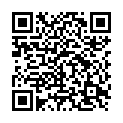|
|
|
| Module code: DBWI-190 |
|
|
- |
|
13 |
| Academic Year: 1 |
| Mandatory course: yes |
Language of instruction:
German |
Assessment:
Non-graded course credit in accordance with the requirements for poster presentations after the first practical module at the ASW in "Technik" (Technology).
The poster presentation will take place at the end of block 2B (2nd semester; mid/end of August) as part of the seminar “Professionelles Präsentieren” (Professional Presentations).
Prerequisites for receiving credits:
Passing the above-mentioned academic achievement (= “passed” grade from the examination board)
[updated 08.04.2025]
|
DBMAB-190 (P720-0036) Mechanical Engineering / Production Technology, Bachelor, ASPO 01.10.2021
, study year 1, mandatory course
DBWI-190 (P740-0016) Industrial Engineering / Production Management, Bachelor, ASPO 01.10.2022
, study year 1, mandatory course
DBWI-190 (P740-0016) Industrial Engineering / Production Management, Bachelor, ASPO 01.10.2021
, study year 1, mandatory course
|
|
The total student study time for this course is 390 hours.
|
Recommended prerequisites (modules):
None.
|
Recommended as prerequisite for:
|
Module coordinator:
Prof. Dr. Andreas Metz |
Lecturer: Prof. Dr. Andreas Metz
[updated 11.06.2021]
|
Learning outcomes:
Professional Presentations:
This seminar is part of the academic supervision provided by the study director.
Students will have mastered the basics of presentation techniques. They will be able to prepare and develop presentations in a systematic and targeted manner.
They will be familiar with the main forms of presentation (speaking freely, or holding a talk with slides or screen presentation support) and will be able to use these in their own presentations. In addition, they will be able to integrate things such as product demonstrations or films into their presentations in an appropriate manner. In addition, they will be able to describe and understand technical problems from operational practice in a written paper (poster presentation).
Practical phase (= practical professional activities):
As part of their practical work, students will gain first insights into applying the basics from their field of study in operational practice. Under instruction:
They can describe narrowly defined problems according to predetermined principles, continue their learning processes in a narrowly defined area and acquire up-to-date knowledge. In subject areas with which they are familiar, students will be able to apply various fundamental methods and procedures on their own. Furthermore, students will be familiar with the basic processes in their respective companies and will be able to present these appropriately. In this module, students will thus apply their knowledge to their professional activities for the first time and thus, be able to this knowledge to include practical issues and skills.
The aim of practical module 1 is to expand and strengthen instrumental skills and to develop systemic skills in collecting, evaluating and interpreting relevant information, as well as in independently designing further learning processes.
[updated 08.04.2025]
|
Module content:
Seminar: Professional Presentations:
• Basics of presentation techniques,
• Setting goals and monitoring success,
• Systematic preparation of a presentation (target group analysis, technical preparation, risk analysis),
• Logical structure and dramaturgy of a presentation,
• Resources and how to use them
• Alternative presentation forms
Practical work experience in the resp. company:
This part of the dual study program gives students an understanding of industrial practice by providing them with basic practical skills (including manual skills) in departments with the following focus: design engineering, manufacturing technology (molding, forming, cutting, joining, coating, changing material properties), plastics technology, quality assurance, materials testing, damage analysis, assembly and maintenance.
[updated 08.04.2025]
|
Teaching methods/Media:
Seminar: Stimulated and question-based teaching, demonstrations in individual, partner and group work, classroom discussion
Practical phase: Practical work in the company providing the training (developed) in individual, partner and/or group work
[updated 08.04.2025]
|
Recommended or required reading:
[updated 08.04.2025]
|

